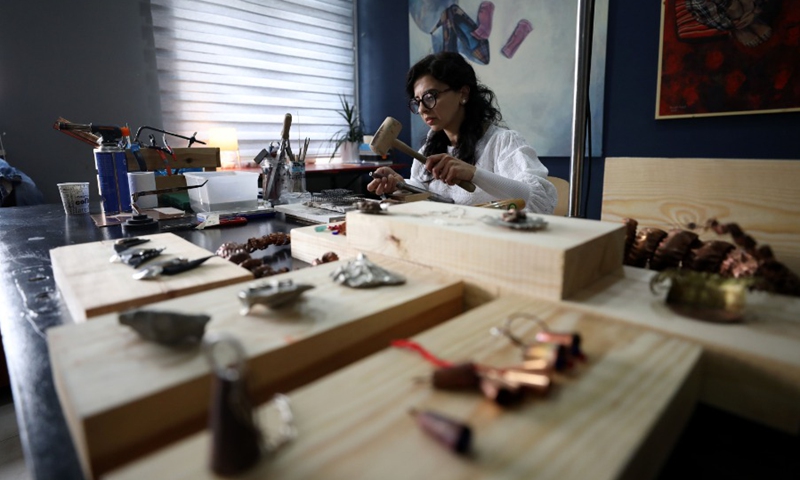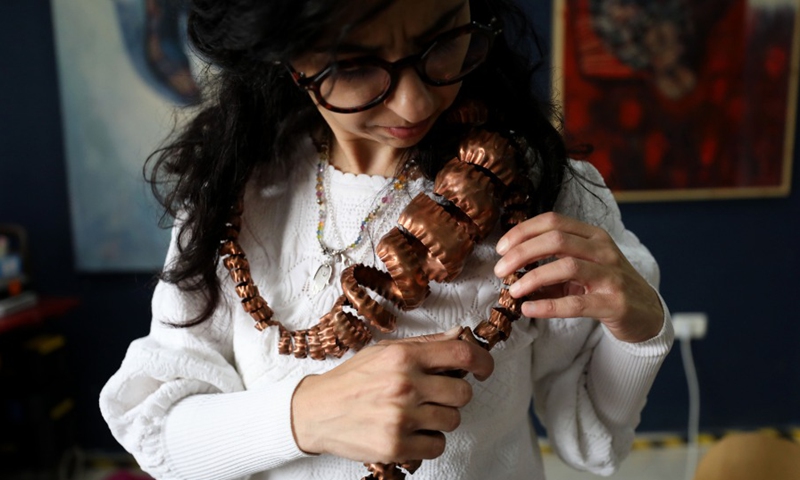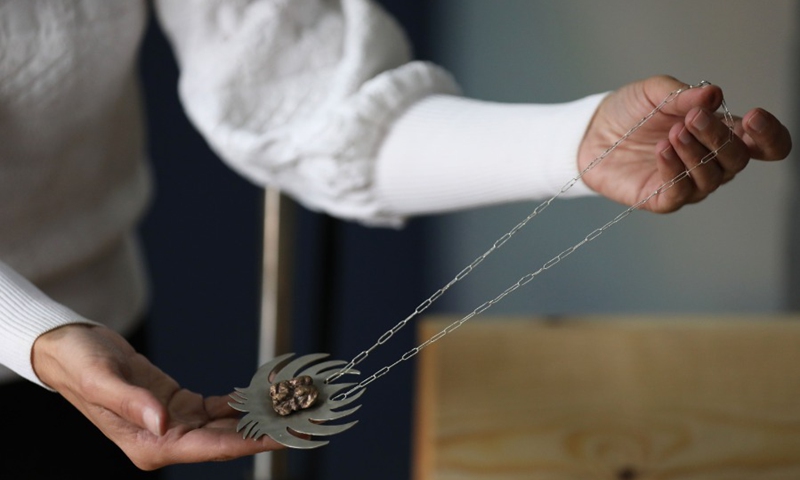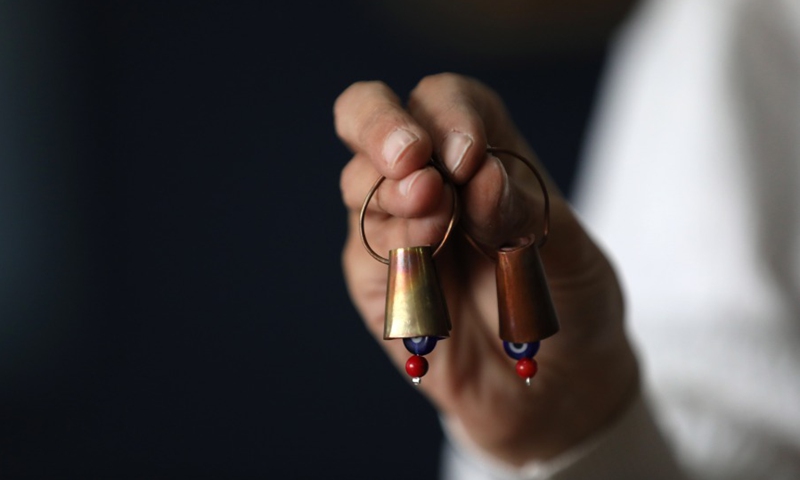
A Palestinian Rawan Raafat from East Jerusalem manufactures traditional Palestinian jewelry at her own shop on April 12, 2021.(Photo: Xinhua)

A Palestinian Rawan Raafat from East Jerusalem wears traditional jewelry at her own shop on April 12, 2021.(Photo: Xinhua)

A Palestinian Rawan Raafat from East Jerusalem displays traditional Palestinian jewelry at her own shop on April 12, 2021. (Photo: Xinhua)

A Palestinian Rawan Raafat Rawan Raafat from East Jerusalem shows bell earrings at her own shop on April 12, 2021. (Photo: Xinhua)
Rawan Raafat, a young Palestinian woman from East Jerusalem, spends hours a day in front of a huge table, her indispensable tool for the manufacturing of traditional Palestinian jewelry.
Bell earrings, catenaries carrying talismans, and headscarf decorations are just a few of the items the 39-year-old woman is making, using a combination of copper and silver.
Once her products are finished, she takes photos and posts them on her Instagram and Facebook pages.
"I was surprised to learn that all my products were sold out, despite the fact that they were a little pricey with each sold for 100 U.S. dollars," the woman said.
"Palestinian women like what I produce, as they differ from other items on the market," she added.
But being different was not Raafat's original goal. For her, it was more important to revive the traditional Palestinian jewelry and its heritage.
"We (Palestinians) have been living under ongoing conflicts with Israel for many years now. It has impacted the way we are viewed by the international community," she explained.
And this negative image is something that Raafat would like to change through her jewelry making that would use Palestinian conventional production methods.
"This is why I created my own traditional pieces in 2020 to revive our jewelry, which we lost amid the ongoing crisis that we are suffering from," said Raafat.
"There is no doubt that the military, political and economic conflicts with the Israelis have negatively affected all aspects of our life in the Palestinians' territories, including our psychology," she said.
Recent years have been exceptionally difficult for the Palestinians. Unemployment in the Palestinian territories, including the West Bank, East Jerusalem and the Gaza Strip, surpassed 28.5 percent, and poverty rates have also surged, whereas the security situation has deteriorated.
"In the past, our ancestors lived a quiet life full of positive energy and stability. Although they were working hard in farming their lands, most of them wore jewelry, both women and men," she said.
Now the situation is different, but Raafat says she is not prepared to give up on her dream of jewelry revival. And she also says she would like to improve her skills.
To do that, she has been researching the various types of metals and their effects on people, especially children and women.
"I found that most of our traditional jewelries were often jewels, square or triangular stones, on which metal was poured," she explained, saying that all of them "helped people to get rid of their negative energy."
She explained that in the past, women used their own pieces of jewelry to expel negative energy from their bodies, especially items that were made of copper and silver.
Back then, they believed that copper supported the tissues and the red blood cells. Bracelets made of copper have been used to treat arthritis, skin diseases and wounds. It has also been found useful in treating internal diseases such as heart problems, cancer and anemia.
"This is the reason why I am trying to revive it and bring this jewelry to both men and women alike," she said.
But despite her goodwill and the growing demand for her items, expansion in sales does not come easy, especially given the deficit of raw materials and the high prices on tools.
"I have to go to Israeli cities in order to buy raw materials, which sometimes I am prevented from buying or prevented from carrying large quantities, and this can hinder my work for weeks," she explained.
But defying all odds, the Palestinian lady insists on continuing her project and spreading positive energy by encouraging more people to wear such jewelry.
In addition, she aspires to create her own global brand that would define the Palestinian traditional jewelry heritage that reflects a different image of the Palestinians who prefer to live in stability.
"It is not superstitious, but it is our history that we should be proud of and strive to protect from extinction," she said.
